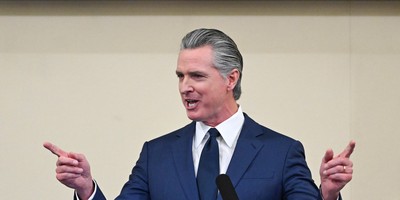According to a series of national news stories, President Barack Obama is looking to play the “underdog card” in the 2012 campaign. But why would the most powerful man in the world cast himself as an underdog? Because playing the underdog card works. Here is why.
In the 2008 Presidential primaries, candidates Barack Obama, Hillary Clinton, John McCain, John Edwards, Mitt Romney and Rudy Giuliani all cast themselves as underdogs. The Merriam-Webster dictionary defines an underdog as “a loser or predicted loser in a struggle or contest.” So, if a politician’s goal is to win elections, why do so many politicians clamor to portray themselves as underdogs?
In practical terms, underdog campaigns find it easier to motivate their supporters due to a built-in sense of urgency and insurgency. In elections, this translates to an “enthusiasm gap,” which team Obama boasted about in 2008 when they led the Republicans in voter enthusiasm 61% to 35%. But, as TIME Magazine observed last week, the Obama campaign’s 2012 strategy video was missing its “enthusiasm gap” slide. Perhaps the reason for the missing slide is because the enthusiasm of an underdog insurgency campaign has gone missing from Obama re-elect 2012.
Which explains why President Obama and his handlers are playing the underdog card. And they have scientific evidence to support their strategy.
A University of South Florida study, “The Advantage of Disadvantage: Underdogs in Politics,” gave two groups of test subjects near-identical Barack Obama speeches. The only difference: one group’s speech described Barack Obama as a frontrunner, and the other described him as an underdog.
Recommended
The study found “the underdog label can reap benefits for politicians,” “the underdog label is regarded positively,” and “underdogs are seen as warmer and more likeable than frontrunners.” These findings are supported by earlier studies, including Fleitas (1971), in which voters demonstrated “a significant shift in favor of the underdog,” and Ceci and Kain (1982), in which “[p]articipants who were told [Jimmy] Carter was leading in the polls were more likely to express a preference for [Ronald] Reagan, while those exposed to a Reagan-lead poll aligned themselves with Carter.”
These academic studies were borne out by the experience of the 2008 presidential primary campaigns, which saw frontrunners from both political parties defeated by underdog insurgencies. What is the difference between an underdog and a frontrunner? Power. Or, at least, the perception of power.
The reason why the underdog narrative, or “Underdogma” as I call it, is so prevalent in politics is because Underdogma and politics are both about power. Millions of people make decisions about right and wrong, good and evil—and even which candidate to vote for—based on whichever side is perceived to have less or more power. It is part of our national DNA. America was built on an underdog insurgency against a more powerful adversary. Which is why millions of people automatically take the side of the underdog, often times without thinking.
This is a problem for front-running politicians. And potentially devastating for the most powerful man in the world, Barack Obama, as he seeks re-election in 2012.
President Obama understands the risk of being portrayed as an “overdog.” Which is why he has consistently positioned himself as being on the side of the little guy, and raising a fist to powerful “overdog” adversaries such as oil barons and big Wall Street “fat-cats.” It is why he is now painting himself as an underdog in the 2012 campaign, and raising his underdog fist to “an array of forces that are already lined up against us.” And it is why his top advisor said, “the administration has said very clearly…that we’re going to speak truth to power.” Which is an odd thing to hear from the highest seat of power in the world.
Will the President successfully play the underdog card to win in 2012? Only if he succeeds in making voters forget that he is the most powerful man in the world, who is amassing one billion dollars to fight a campaign against those who are less powerful than him.

























Join the conversation as a VIP Member